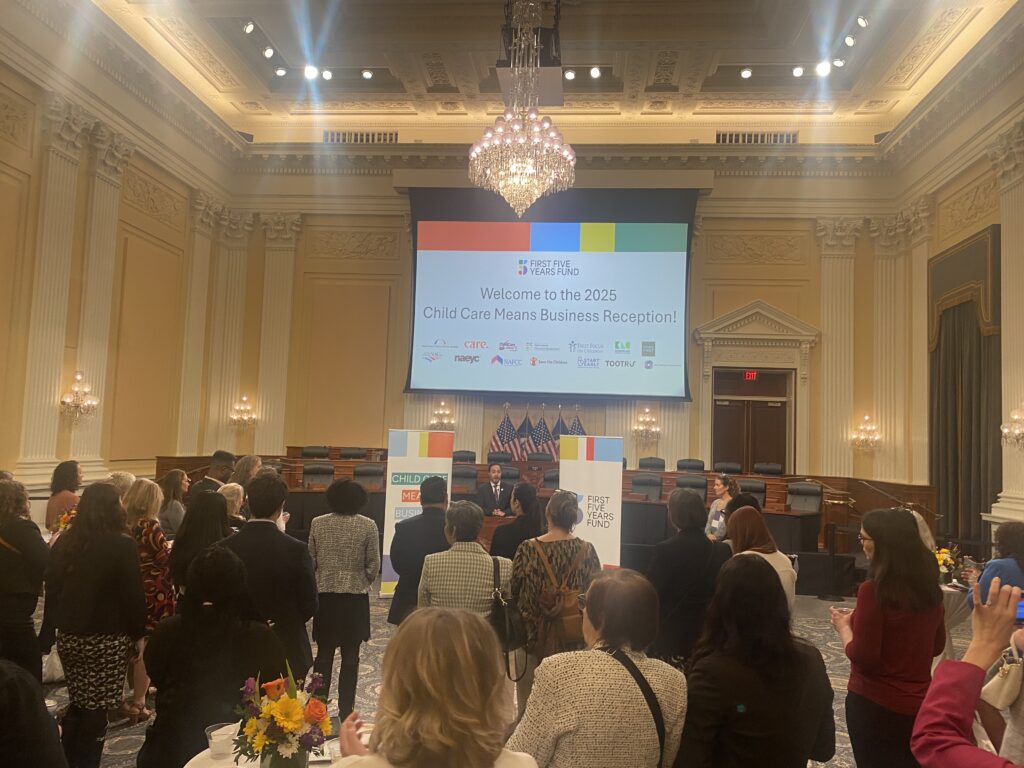Economy & Business
Child care is an integral pillar to supporting a thriving economy, with 27 million Americans relying on it to work. The national shortage of affordable child care programs is doing significant harm to family finances, businesses’ bottom lines, and the U.S. economy broadly.
Here are five things to know about child care and our economy.
- The United States economy loses an estimated $122 billion a year due to child care challenges.
- On average, businesses lose $1,640 a year for each working parent due to lost revenue and hiring costs because of insufficient child care, totaling $23 billion annually.
- 77% of small business leaders say access to high-quality, affordable child care is essential or important to strengthening the economy and helping workers.
- Investments in high-quality child care and early learning programs can generate up to $7.30 per every dollar invested.
- The availability of early childhood education programs attracts homebuyers and increases property values by $13 for every dollar invested in programs.
Learn more:












